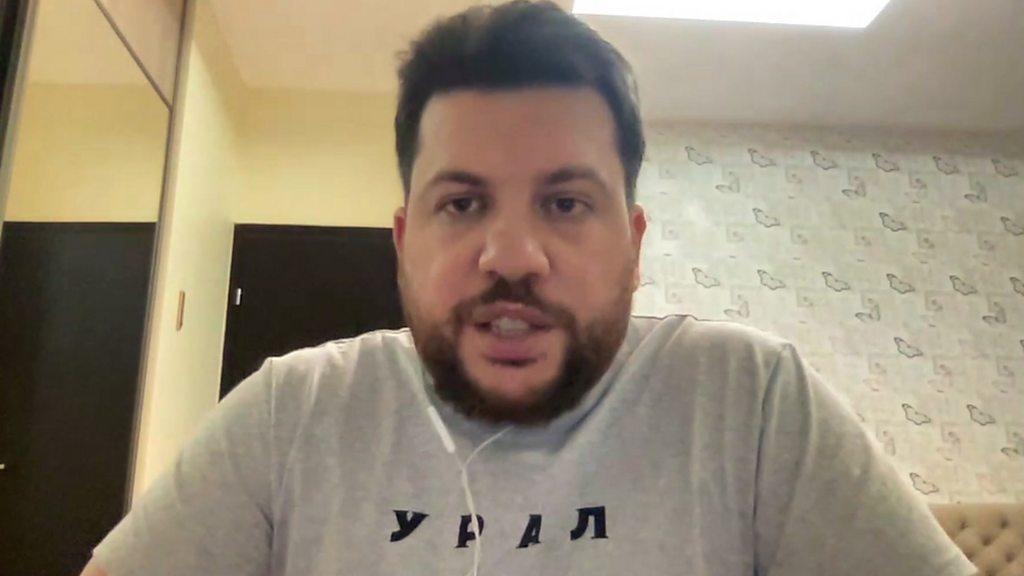Navalny protests: Thousands across Russia join demonstrations
- Published
Hundreds of protesters in Moscow were detained by police
Thousands of Russians have taken part in unauthorised protests to demand the release of the jailed opposition leader Alexei Navalny.
More than 5,000 people have been detained in nearly 90 cities, a monitoring group says. In Moscow police blocked off the city centre.
Mr Navalny was jailed on his return to Russia after recovering from an attempt to kill him with a nerve agent.
He blames the security services for the attack but the Kremlin denies this.
The opposition figure, a vociferous critic of Russian President Vladimir Putin, was arrested nearly two weeks ago after arriving in Moscow from Germany, where he spent months recovering from the near-fatal incident.
Sunday's mass arrests brought international condemnation. The US accused Russian authorities of "persistent use of harsh tactics" against protesters.
Despite the crackdown, Mr Navalny's supporters have called for another demonstration on Tuesday outside a Moscow court where he is due to appear.
Prosecutors want him to serve a three-and-a-half year prison sentence that was suspended in 2014. He was convicted on embezzlement charges that Mr Navalny says were trumped up.
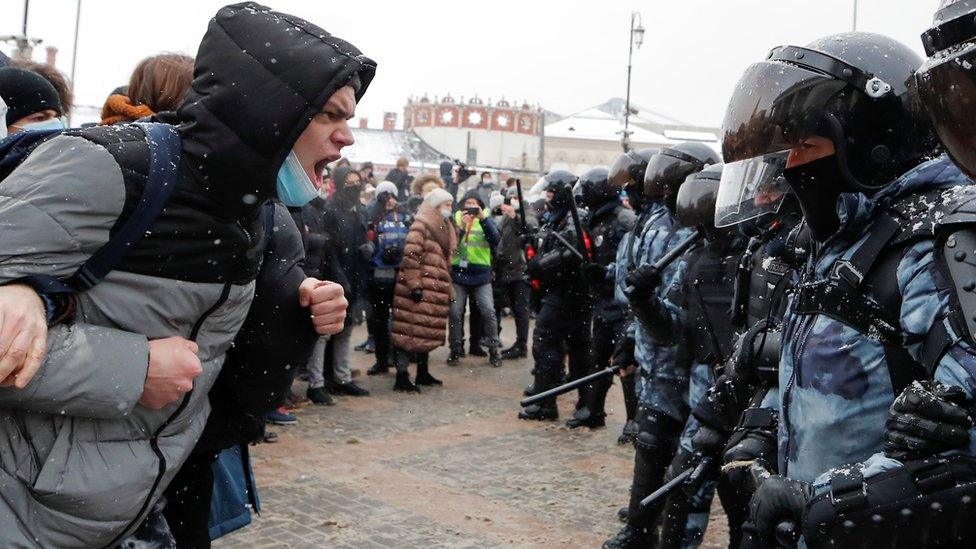
Police restricted movement in central Moscow

Desire for change as Putin retains support

It's risky protesting in Russia. Even if you escape the police batons, you can be fired, face a hefty fine or criminal prosecution.
So the fact that people turned out for a second weekend, right across Russia, is significant - the fact that there were fewer than last week, unsurprising.
By blocking off central Moscow, the authorities were trying to prevent a large crowd gathering in one place and so play down the scale of dissent. Instead, they got protesters marching along main city streets to the hoots of passing cars whose passengers waved victory signs in support.
Shopkeepers were drawn to their windows to watch and, in one beauty salon, women in hairnets stood filming on their phones as the crowd filed past.
Most protesters I spoke to said they weren't fans or followers of Alexei Navalny in particular, but they are shocked at how he's been treated. They described him as a symbol of resistance and talked of their own desire for change.
None of this means that Vladimir Putin is about to be ousted - he still has significant support. But after two decades in power, the shine has begun to rub off his presidency.

Where were the protests?
In Moscow, protesters played cat-and-mouse with police, the BBC's Sarah Rainsford says, getting up close to officers before retreating to safety. Footage showed a stream of people being escorted on to buses by riot police.
Protesters then attempted to reach the Matrosskaya Tishina prison where Mr Navalny is being held.
Mr Navalny's wife, Yulia Navalnaya, was among those detained at Sunday's protest. She was later released.
A 40-year-old protester in Moscow told Reuters: "I understand that I live in a totally lawless state. In a police state, with no independent courts. In a country ruled by corruption. I would like to live differently," she said.
In St Petersburg, President Putin's home city, a crowd gathered in a central square and chanted: "Down with the Tsar."
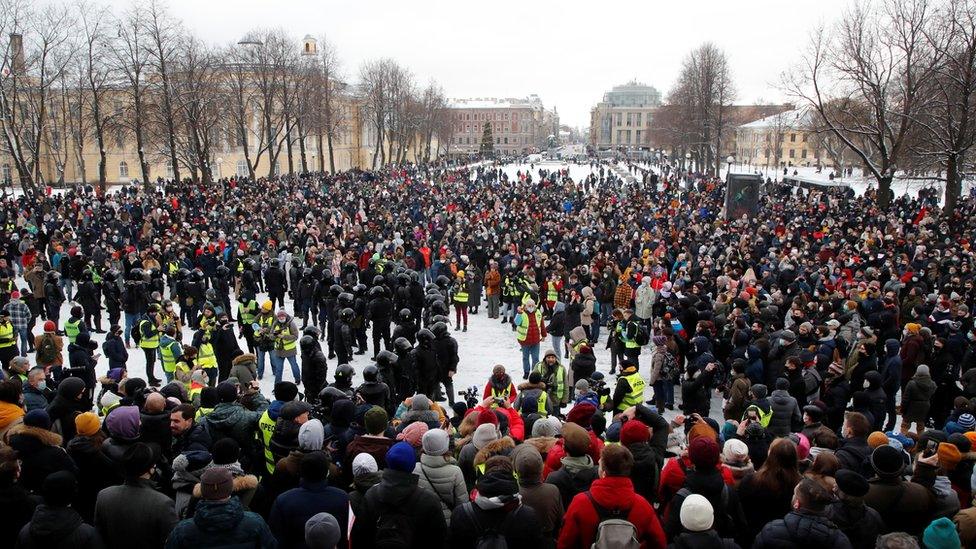
Crowds in St Petersburg chanted: "Down with the Tsar"
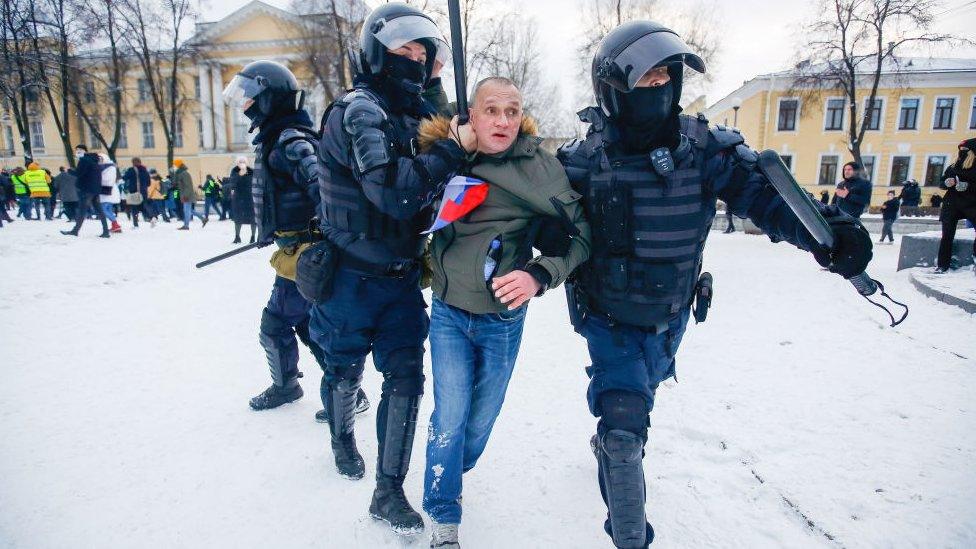
More than 1,000 arrests were made in St Petersburg
In the Siberian city of Novosibirsk, at least 2,000 people marched through the city chanting "Freedom" and "Putin is a thief".
In Yakutsk, also in Siberia, where temperatures fell to -40C, a protester named Ivan said it was the first rally he had attended.
"I am tired of the despotism and lawlessness of the authorities. No questions have been answered. I want clarity, openness, and change. This is what made me come here," he said.
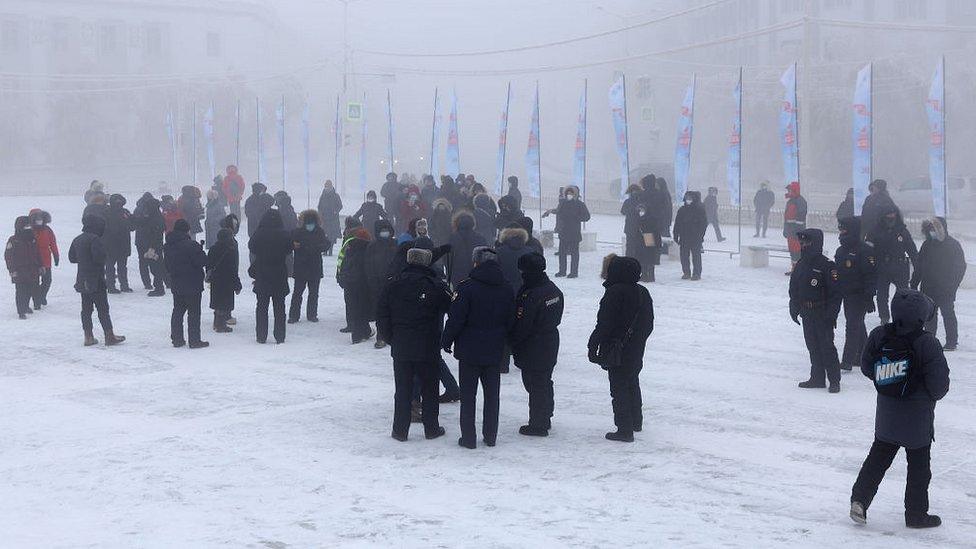
Dozens of people in Yakutsk braved the extreme cold to protest against the government
Further rallies saw about 1,000 people demonstrate in Omsk, Siberia, and about 7,000 people protested in Yekaterinburg in the Ural region, according to local media.
The OVD-Info monitoring group said police had detained more than 5,000 people at protests in 86 cities across the country. They included 1,608 held in Moscow and 1,122 in St Petersburg.
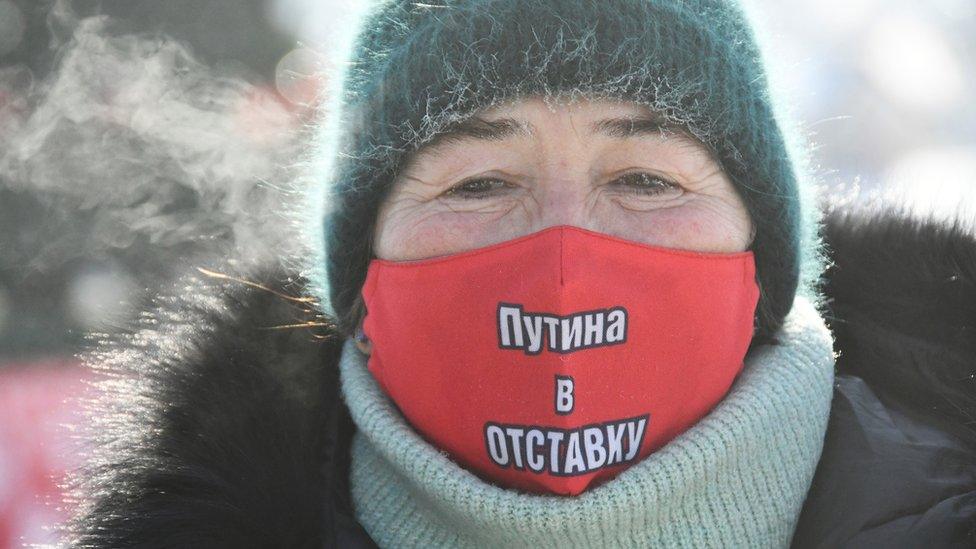
A protester in Vladivostok wears a mask that says: "Putin must resign"
A number of close associates of Mr Navalny have been detained since last week and others, including his brother and Pussy Riot activist Maria Alyokhina, have been put under house arrest.
The chief editor of a Russian website specialising in human rights, Sergei Smirnov, was also arrested outside his home on Saturday. News of his detention, apparently over allegations he participated in last week's protests, has been condemned by other journalists.
In Moscow, police have reportedly been struggling to find space in jail for supporters of the opposition leader.
Dozens of supporters of Alexei Navalny have reportedly been detained in Vladivostok, after gathering there
What reaction has there been?
UK Foreign Secretary Dominic Raab condemned the "indiscriminate and arbitrary" arrests and called on the Kremlin to respect peaceful protests.
Allow X content?
This article contains content provided by X. We ask for your permission before anything is loaded, as they may be using cookies and other technologies. You may want to read X’s cookie policy, external and privacy policy, external before accepting. To view this content choose ‘accept and continue’.

The EU's foreign policy chief, Josep Borrell, said he deplored the "widespread detentions and disproportionate use of force".
New US Secretary of State Antony Blinken condemned "the persistent use of harsh tactics against peaceful protesters and journalists".
He called for Mr Navalny and other opposition supporters to be released.
In response, the Russian foreign ministry accused the US of "gross interference" in its internal affairs and of using "online platforms" to promote the protests.
Why was Navalny detained?
Russian authorities said Mr Navalny had failed to report to police regularly in connection with the suspended sentence for embezzlement.
He has denounced his detention as "blatantly illegal", saying the authorities had allowed him to travel to Berlin for treatment for the Novichok poisoning, which happened in Russia last August.
Mr Navalny has blamed state security agents under Mr Putin's orders for the attempt on his life. Investigative journalists have named Russian FSB agents suspected of the poisoning.
But the Kremlin denies involvement and disputes the conclusion, by Western weapons experts, that Novichok was used.
Related topics
- Published30 January 2021
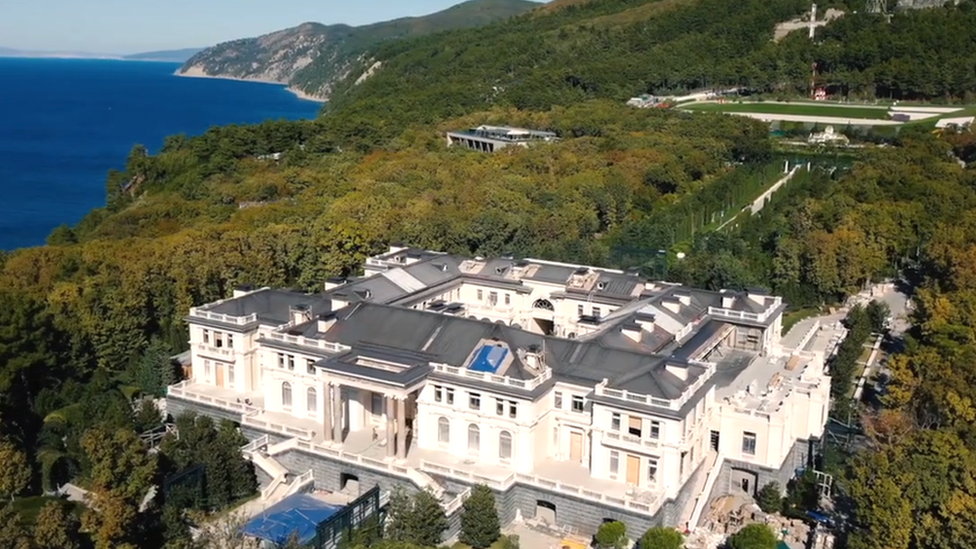
- Published29 January 2021
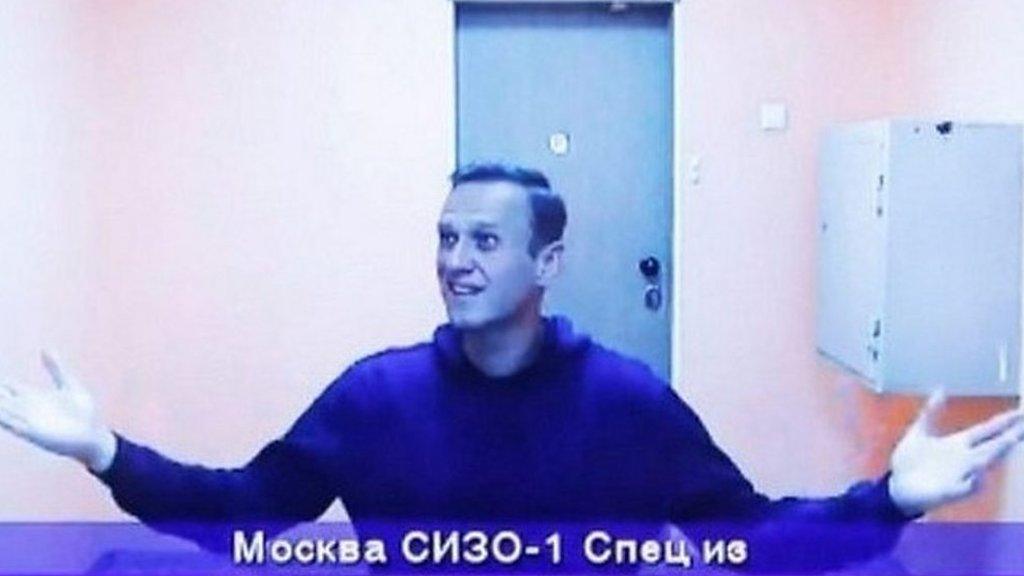
- Published27 January 2021
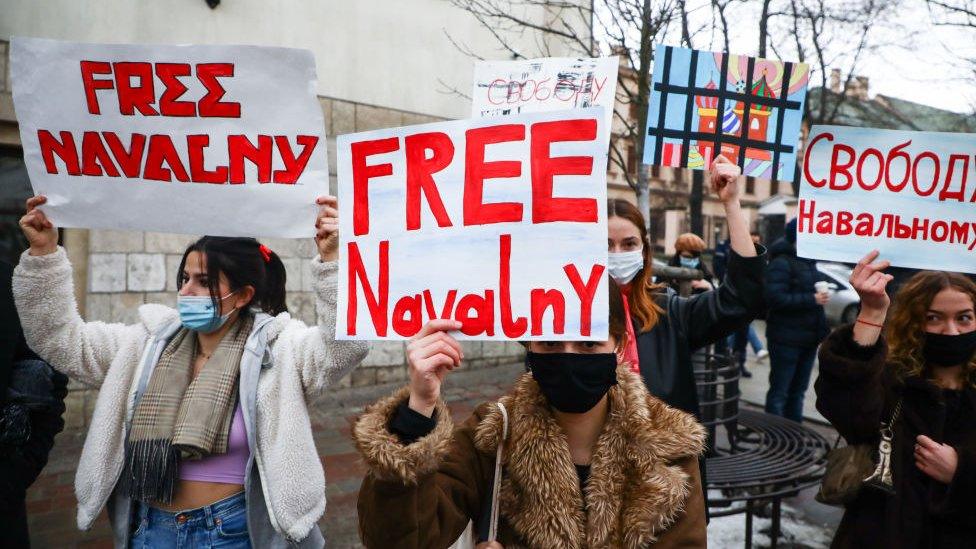
- Published28 January 2021
